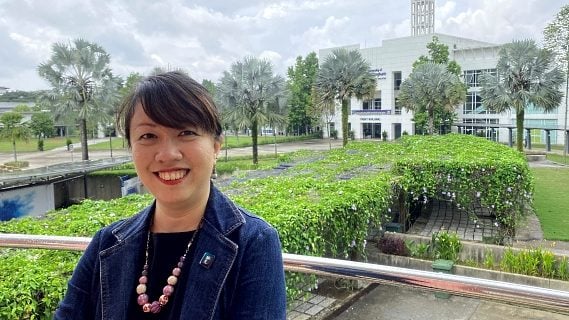Research conducted during the pandemic revealed, mental health issues among Malaysians increased by two-fold compared to the baseline data from NHMS 2019.
The outcome of this was a soaring figure of 2800 suicide cases throughout the pandemic.
Low-income groups who experienced double financial hardship are of our concern on their likelihood of developing mental health issues.
The critical mental health issues are a reflection of gaps in accessing the current mental healthcare.
Poor help-seeking behavior stems from high mental health stigma, and low mental health literacy hinders an individual from getting the needed treatment.
By realizing stigma, a threat to successful prevention and treatment, high-income countries like the UK have adopted online low-intensity psychosocial therapy as one of the mainstays for mild common mental health issues(NICE, 2009a, 2009b, 2021).
Their research has shown that online therapy reduces stigma and promotes the uptake of treatment (Griffiths, Christensen, Jorm, Evans, & Groves, 2004; Sweeney, Donovan, March, & Forbes, 2019).
An online culturally sensitive health promotion ReSHApe (Recognize, Self-help and Help-seeking) tool, developed by a group of researchers from University Malaya, showed a positive uptake from the low-income group and reduced mental health issues through a positive psychology approach.
This health promotion tool was developed and used during the pandemic time.
Digital mental health has the advantage to reach out to underserved audiences with low budgets, less stigmatized and with minimal professional assistants.
The drawback is high dropout rates but is offset by the massive outreach of audiences. Hence, here are a few policy recommendations for mental health digitalization.
 1. Anti-stigma mental health promotion intervention for vulnerable communities should be the policy priority and explicit in the national mental health policy and strategic plan.
1. Anti-stigma mental health promotion intervention for vulnerable communities should be the policy priority and explicit in the national mental health policy and strategic plan.
2. Task-shifting leverage on non-professional workers to implement less structured mental health intervention that promotes positive psychology in the community setting. Such an approach is culturally appropriate, less stigmatized and less labor-intensive to strengthen this country’s limited mental healthcare workforce.
3. Improving network coverage on the internet divides areas like rural areas of East Malaysia, low-cost housing areas with more subsidized charges. By reducing network inequity among the poor, enabling access to quality online mental healthcare.
4. Invest in online research related to social and behavior in the real-world setting to understand poor help-seeking behavior. Research done by social scientists showed that the human belief system could defy evidence-based intervention and go for less scientific options. Human behavior may elucidate vaccination hesitancy in the community despite adequate health education.
Digitalizing mental healthcare is destigmatizing public health measures to resolve the unmet needs and bring the vulnerable to quality health care through sound technology.
With this, it is hoped that optimizing digitalization closes the global mental health inequality gaps.
References:
Griffiths, K. M., Christensen, H., Jorm, A. F., Evans, K., & Groves, C. (2004). Effect of web-based depression literacy and cognitive–behavioral therapy interventions on stigmatizing attitudes to depression: Randomized controlled trial. British Journal of Psychiatry, 185(4), 342-349. doi:10.1192/bjp.185.4.342
NICE. (2009a). Depression in adults with a chronic physical health problem: recognition and management.
NICE. (2009b). Treatments for mild to moderate depression.
NICE. (2021). Improving Access to Psychological Therapies (IAPT).
Sweeney, G. M., Donovan, C. L., March, S., & Forbes, Y. (2019). Logging into therapy: Adolescent perceptions of online therapies for mental health problems.
(Faculty of Medicine, Universiti Malaya: Dr Wong Min Fui @ Esther Wong, DrPH Candidate, Social and Preventive Medicine; Associate Professor Dr Mas Ayu Said, Public Health Medicine Specialist, Department of Social and Preventive Medicine; Associate Professor Dr Hazreen Abdul Majid, Associate Professor of Nutrition and Dietetics,Center for Population Health and Department of Social and Preventive Medicine; and Professor Dr. Rozmi bin Ismail, Deputy Dean of Postgraduate, Psychology and Human Wellbeing Research Center, Social Psychologist &Transport Psychology Expert,Faculty of Social Sciences and Humanities, UKM Bangi.)
ADVERTISEMENT
ADVERTISEMENT






































